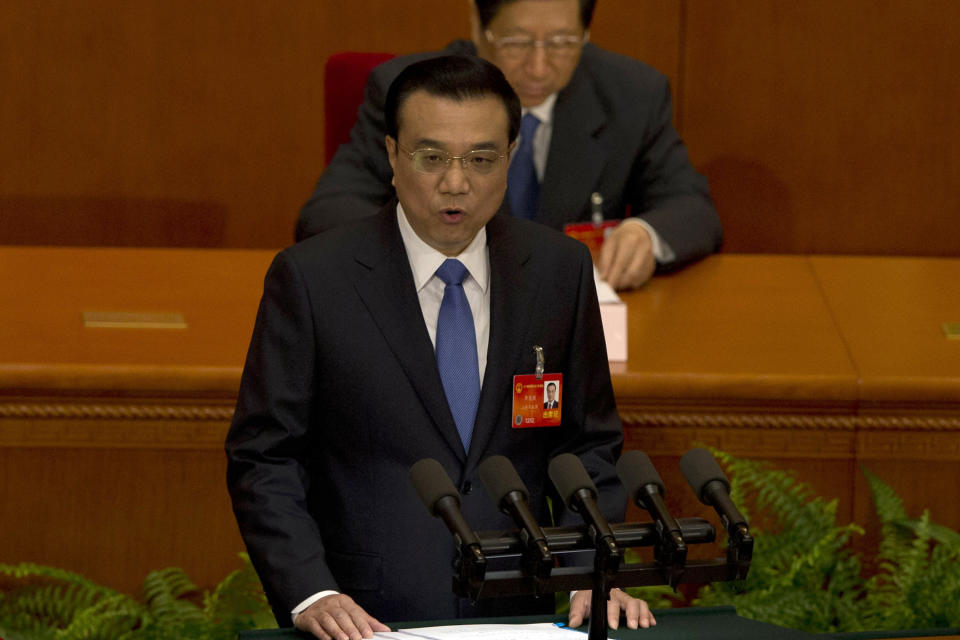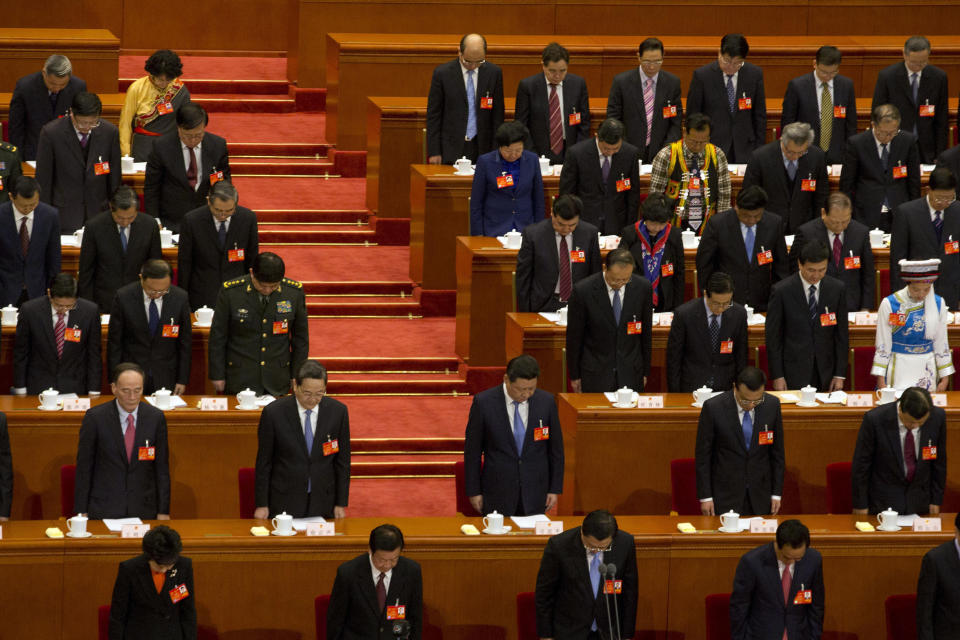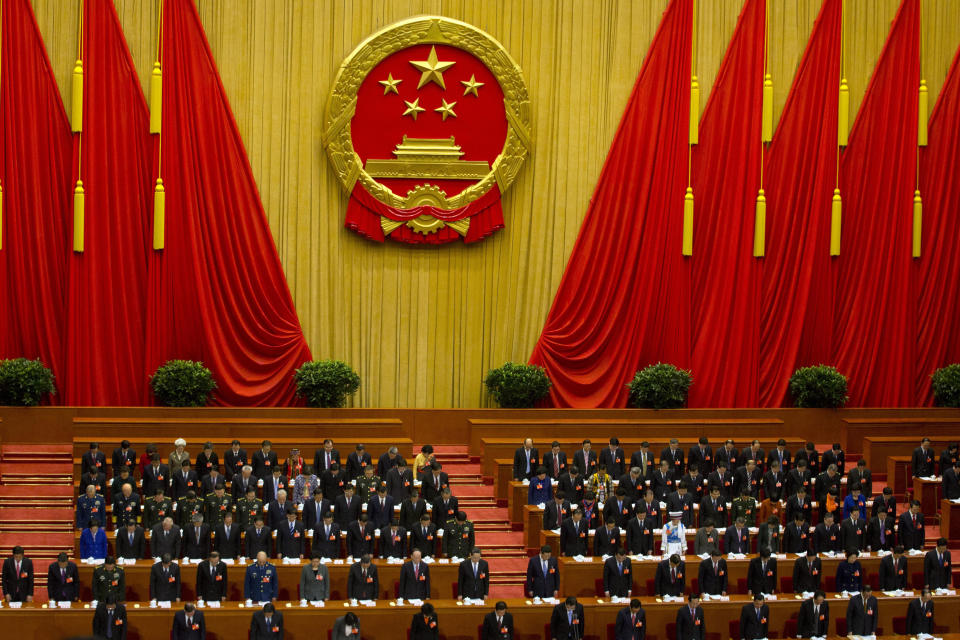China vows to address stifling smog, terror threat
BEIJING (AP) — China's government vowed to address long-festering complaints about choking smog while promising to crack down harder on the new threat of terrorism and promote unity among the country's sometimes-restive ethnic minorities.
In his first annual policy speech, Premier Li Keqiang also pledged to move more people into the middle class, cut government waste and push further with President Xi Jinping's signature campaign to fight the rampant official corruption that has undermined public faith in the Communist Party.
Li's speech at Wednesday's opening of China's annual ceremonial legislature comes as the government confronts ethnic unrest in the far western region of Xinjiang that has intensified over the past year. On Saturday, China saw the first big terror attack outside Xinjiang blamed on militants from that region — a slashing attack at a train station in Kunming that killed 29 people and wounded 143.
In Beijing, the meeting's nearly 3,000 delegates from across the country observed a moment of silence for the victims of the attack as the session opened.
Li briefly mentioned Saturday's attack in his speech, saying authorities would toughen its controls on public order and "crack down hard on violent crimes of terrorism."
Chen Fengxiang, a delegate from Hubei, said during the session that the government would adopt stronger security steps following the attack by assailants wielding large knives.
"They lost their senses, and we must crack down harshly and take strict measures in preventing the violence," Chen said.
Much of Li's report served to further define priorities that had been outlined after a party policy meeting in November, which included plans to make the world's second-largest economy more open and competitive.
Li announced an official growth target of 7.5 percent for this year and pledged that Beijing will encourage competition, ease exchange rate controls and improve access to credit for productive businesses. Last year, the economy grew 7.7 percent.
Li said the government will work harder to reduce pollution by shutting more coal-fired furnaces and controlling the tainting of rivers. He referred to the stifling smog that creeps over increasing areas of China and the fouling of the country's air, water and soil as "nature's red-light warning against the model of inefficient and blind development."
Li promised to cut government waste, reiterating earlier decisions to ban the building of new government offices and reduce the number of government employees. He said the administration would try to be more responsive to the people's concerns and penalize corrupt officials "without mercy."
Outside the Great Hall of the People where security was tight, two middle-aged would-be protesters broke through a police cordon and ran onto Tiananmen Square. One of them threw leaflets into the air before paramilitary police dragged them off the square.
Li emphasized that China's many ethnic groups were all "equal members of the Chinese nation," an indirect response to frequent complaints by minority Uighurs and Tibetans that they are discriminated against for jobs, passports and bank loans and unfairly subject to intense surveillance.
The work report did not indicate any intention on the government's part to review its ethnic policies in Xinjiang and Tibet. Critics say Beijing's policies of encouraging the migration of majority Han and imposing restrictions on religion and language have fueled the recent years' unrest.
The government also released details on its budget, announcing a 12.2 percent increase in military spending to $132 billion. That followed last year's 10.7 percent increase to $114 billion, giving China the second-highest defense budget for any nation behind the U.S., which spent $600.4 billion on its military last year.
Increases in China's military budget have regularly exceeded both total increases in government spending and the nation's rate of economic growth. That has allowed lavish spending on new hardware and better conditions for soldiers, raising concerns about how China intends to use its new-found power amid a rise in tensions with its neighbors over the country's territorial claims.
In particular, there's been a sharp increase in friction between China and Japan in the past 18 months over control of a string of tiny uninhabited islands in the East China Sea.
While becoming increasingly assertive in its own territorial claims, Beijing has at the same time accused Japan of renewed militarism while dwelling on Tokyo's history as an aggressor during World War II.
"We will safeguard the victory of World War II and the postwar international order, and will not allow anyone to reverse the course of history," Li said, in an obvious dig at Tokyo.
___
Associated Press writers Didi Tang, Joe McDonald, Christopher Bodeen and Ian Mader contributed to this report.




